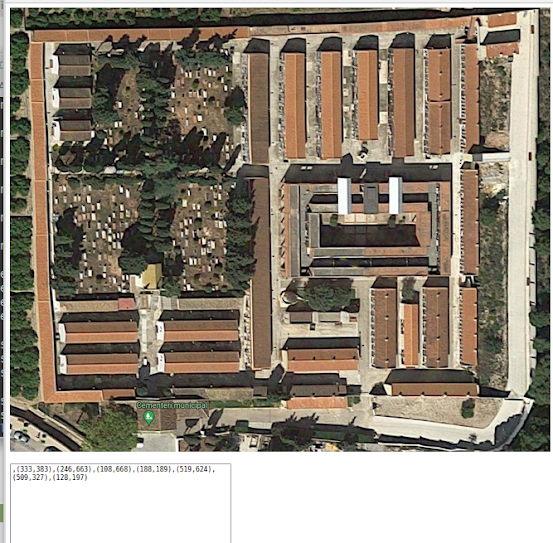11. TypeScript (1) recap with "Makigas"
Credits Makigas typescript course. Makigas (Dani) is a great programming evangelist. His channel is in Spanish.
1. Install VS Code, node, and npm
2. Create a project folder (for instance makigas01)
3. Enter this folder and type npm init. Accept all the default parameters. Verify that the file package.json has been created.
4. Install typescript inside this project (npm i --save-dev typescript) and verify that in this folder there are these files or directories (node_modules, package.json, and package-lock.json) and execute node_modules/.bin/tsc and verify that works.
5. In the package.json file verify the ts version (in the dependencies section, in my case is 4.6.4)
6. Open VS Code and go to the folder makigas01 and press![]() to create a new file for instance first.ts. Save it with Cntrl-S
to create a new file for instance first.ts. Save it with Cntrl-S
7. Compiling: Option 1: (terminal node_modules/.bin/tsc first.ts ) Option 2: (Edit package.json and in the scripts section add the line "build": "tsc first.ts" and in the terminal type npm run build)
9. Playland in typescriptlang.org let you see how the ts code is "transpiled" in time to js. TS Config to select the output of the code (ES3, ES5, ..)
10. Primitive types (let a: string = 'Hello'). Possible types boolean, number, string...
11. Number examples: 1, 0.11, 1_000_000 (for easy readability), 0o701 (octal), 0xaf12 (hexadecimal), 0b100101 (bynary)
12. any, null (optional argument), undefined, void.
13. array (let days: string[] ={"monday", "twesday"} let other: any[] ={true, 23, "twesday"} )
14. tuples (let recs: [boolean,string][]=[[true,"ximo"],["false", "Mike"]] )
15. objects (let person = {name: "John", age:22, job { ent:"ajt", tpe: 12} } person.age=33 ) let other : {name: string, num: number} ={name: "dog", num:2} let obj: object ={}
15.1 referencing properties of objects: person.name="Ximo" person['name']='Ximo'
16. functions ( function sum (n:number, m: number): number {return n+m} let rest: (n:number, m: number) => number =function (n:number, m: number) {return n+m} let mult: (n:number, m: number) => number mult=function (m,n) { return m*n} mult= (m,n)=>m*n let myFun :(a number, b:number, callback: (r:number) => void) => number
17. class (abstract, protected, extends), attributes (private (#), readonly, get and set(virtual attributes), this) , constructor, methods
18. types ( type logintp= { user: string, pwd: string,} )
19. literal types (as constants let a: true = true let b:5=5 let c:'hello' let d: 'one' | 'two' ='one' )
20. type unions ( function afunc( a: string | number) use if(typeof(a) === number) {...})
21. type intersection ( let a: tp1 & tp2 have the arguments of both types) type tp3 = tp2 & {c: string}
22. interfaces (skeleton of class).
23. Optional argument (a?: boolean or a: boolean | undefined) to verify if not undefined use if (l.a) {...} or l.a?.someFunction() or l.a!.someFunction() (only if we are sure that the argument a exists!!!)
24. interfaces and classes ( class Rectangle implements Shape, Polygon..), interfaces can extend other interfaces
25. indexed interfaces ( interface intfA{ [index:string]: boolean } let l: intfA ={} let k= l["pepe"] )
26. functional interfaces ( interface intfB { (a:string, b:string): number } is equivalent to type tpB =(a:string, b:string) => number
27. Window as a global variable store. interface Window to join declarations
28. cast ( let g: intA = f as intfB) where intA is the parent of intB. Also NO ( let g: intA = (<intfB>) f )
29. check ( if (a instanceOf Date not applied to interfaces, only to classes!!!) for interfaces use function isIntfB (a: any) : a is intfB { return x.B_attribute1 && x.B_attribute2 } and use function isIntfB for checking tha a inplements the interface intfB
30. enums (enum week { monday, twesday, wednesday } let dia: week = 0 or week.monday
enum week2 { monday = 401, twesday=12, wednesday="wed"} //Carefull
enum week3 { monday=1, twesday= monday * 2, wednesday=twesday * 2, thursday=myFunc() }
31. Generics (interface intfA<T> { a: T} let b: intfA<boolean> = {a=false} )
interface intfB<T,U> { a: T, a1:U} let b: intfA<boolean, string> = {a=false, a1: 'ximo'}
interface intfB<Tp,Ub> { a: Tp, a1:Ub} let b: intfA<boolean, string> = {a=false, a1: 'ximo'}
32. Generics and functions (T extends Post) careful if Post has a method that has the same name that number (toString()for instance) as number then implements Post too!!!!
33. Generics Utility Types (Partial<Type> -> all the attributes are optional, NonNullable<Type>
34. Modules (export ; export default ; import {} from "./almacen" ; import IVA from './impuestos' ; import IVA, {Impuesto, Precio} from "./Impuestos"; import * as impuestos from './Impuestos" ;
35. Projects (file tsconfig.json created with node_modules/.bin/tsc --init , target: the generated code type (es3, ..), outDir: folder for generated js). Now Edit package.json and in the scripts section add the line "build": "tsc and in the terminal type npm run build) No need to indicate the ts file.
if the file tsconfig.json exists, now you can compile by typing node_modules/.bin/tsc without indicating the file to compile.
36. npm (express, is-odd, is-what, datetoken) in the terminal type npm i is-what and you can use it on ts import {isString} from 'is-what' (note that no need to indicate from './...') and includes the library into the node_modules folder
37. file *.d.ts (definition file for js, inidcating equivalences ts<->js . To use pure js (without d.ts) in tsconfig.json change "allowJS": true or download the packages from @types/is-odd (in this case)
npm --save-dev @types/isodd (use --save-dev !! NOT --save )


Comentarios
Publicar un comentario